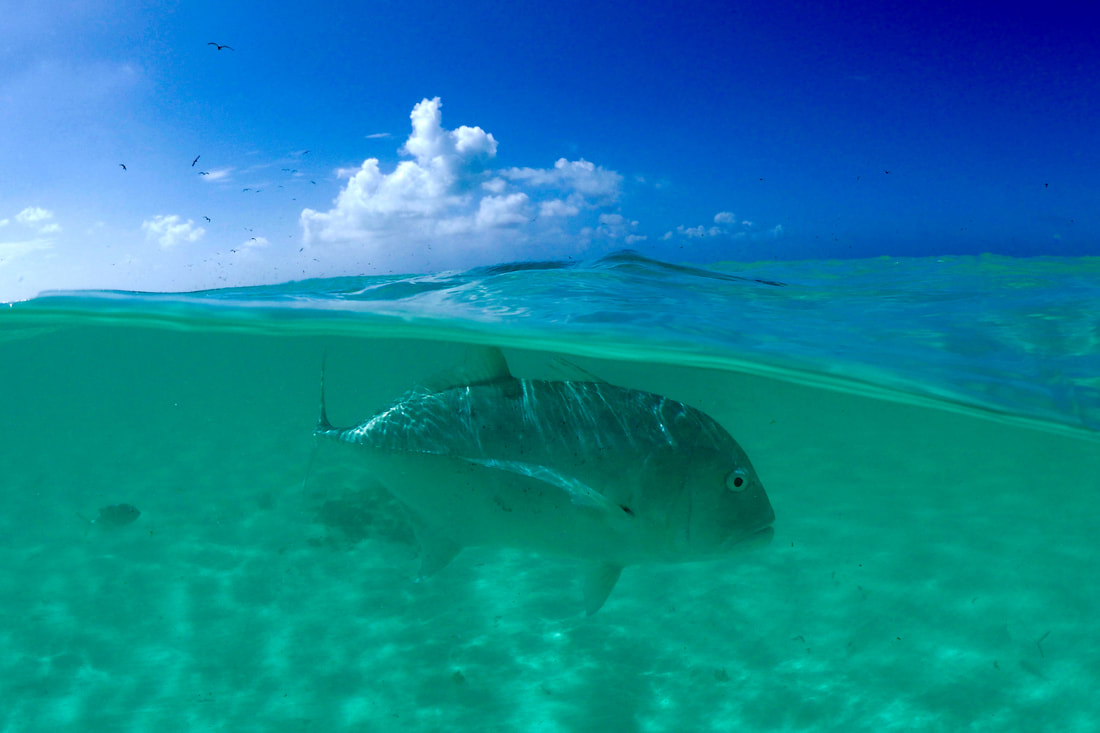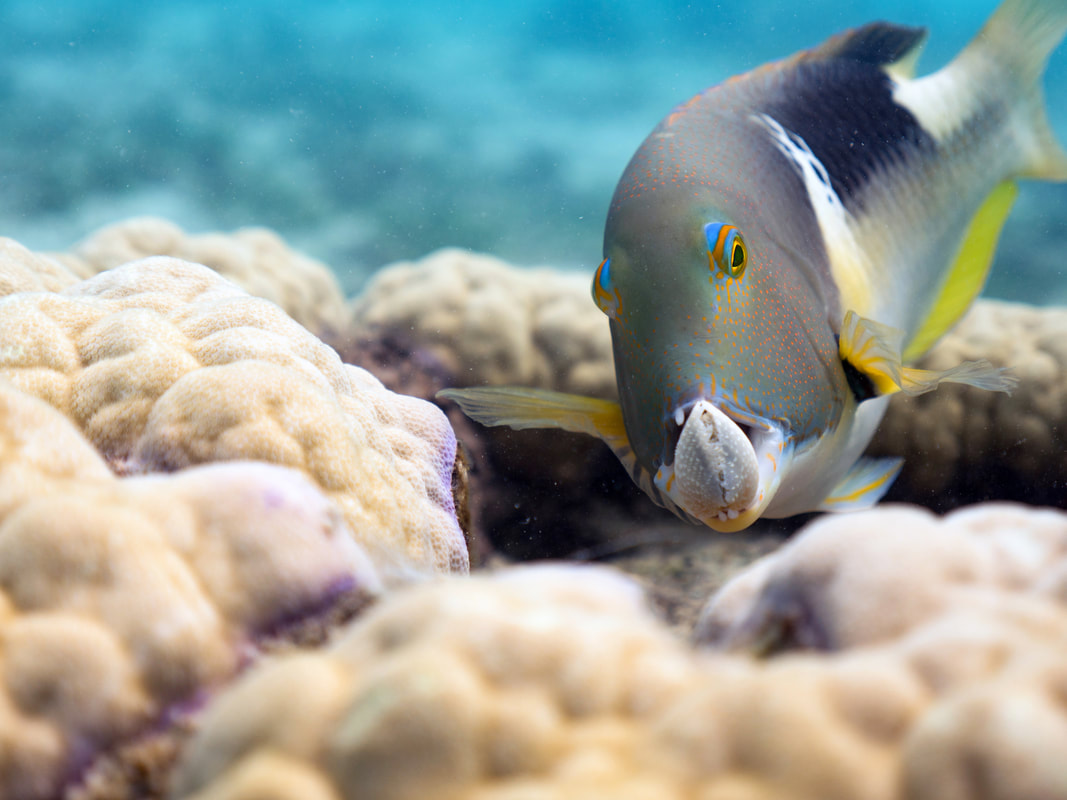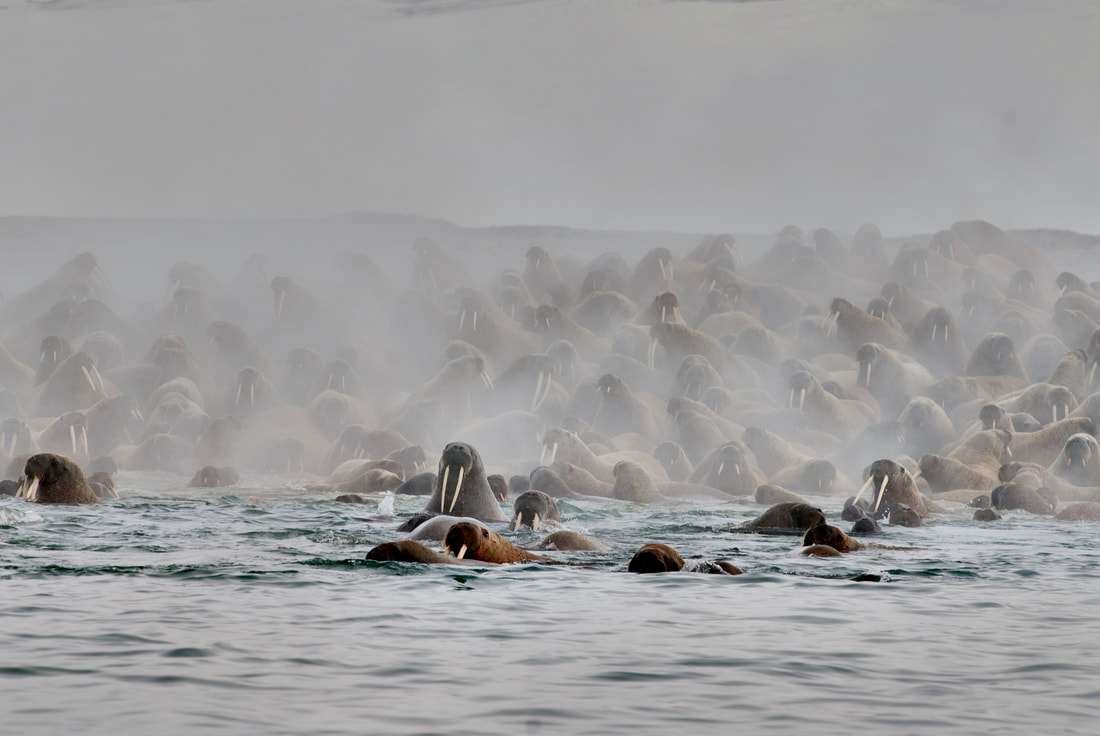|
We reached out to our festival filmmakers to ask them five questions about the experience of making their films.
What inspired this story? Series Producer Mark Brownlow: The ocean is the most exciting place for us to be right now because scientific discoveries and new technologies have given us a completely fresh perspective on life beneath the waves. This series reveals new stories, featuring spectacular new places and extraordinary new animal behaviours that help us to better appreciate the wonder, magic and importance of the seas. It is amazing how much filming technology has moved on since the original Blue Planet series. We have harnessed new technology to tell stories - some never seen before - in completely new ways. Our underwater teams can now dive for much longer than conventional scuba ever allowed. Rebreather diving gives our teams time to sit silently and watch, with no bubbles or disturbance underwater, and really get to know new creatures and their behaviours. If you can sit in a submarine a kilometre down in the abyss for 1000 hours, as we’ve done, or stake out a coral reef with diving rebreathers; or with low light cameras reveal mobula rays in a surreal dance, illuminating worlds of bioluminescence and plankton, then you can tell certain stories that were off limits until now. Were there any surprising or meaningful experiences you want to share? MB: Over four years, we launched 125 separate filming expeditions across 39 countries, clocking up over 6000 hours underwater- and all the while sharing innumerable surprising and meaningful experiences with marine life. Here are just three stories from the field: Coral Reefs Stories: Grouper gesturing and hunting with octopus Coral grouper are some of the most common coral reef inhabitants and yet in the last ten years, research shows that their behaviour is so sophisticated that some aspects of their intelligence might rival that of chimpanzees. Groupers are mid water predators feeding on small coral reef fishes. They are fast in the open sea but too large to access prey in cracks and crevices. For this reason they seek out the assistance of a more manoeuvrable marine creature – a reef octopus. But what is truly amazing is that this is not simply a passive partnership - these animals communicate with each other. By assuming the headstand position and shaking their head from side to side above where a little fish is hiding, the grouper is able to tell the octopus where the prey is hidden. Gestures such as this are thought to only occur in the largest brained species and mean that fish are able to think flexibly to achieve their goals. Not only is this behaviour challenging our understanding of what a fish knows but it’s also making scientist rethink the definition of animal intelligence. Methane Volcano in the Deep episode: We set out to capture scenes at the extraordinary brine pool – an almost mythical lake at the bottom of the sea – and a death-trap to any unfortunate creature that strays into its toxic waters. For several days, we had been capturing wonderful footage of the scene that lay below us at the brine pool. But in the spirit of exploration, we ventured further west in the Gulf, to a site described to me by Dr Samantha Joye, our expedition scientist and deep sea researcher as a ‘thin curtain of bubbles’. When we dived there the next day, we found nothing but a barren desert when we first touched down. Then suddenly, just ahead of us, something shot out from the seabed. We watched it rise up into the water column – a huge bubble, the size of a basketball. As it ascended, a trail of sediment fell away from it, drifting back down. Then another bubble, and another. Suddenly, we were entirely surrounded by giant bubbles of methane, erupting from what had been an empty abyssal desert only minutes before. It felt as if we had voyaged to another planet and we nick-named the site ‘War of the Worlds’. We returned to ‘War of the Worlds’ twice more during our expedition. Both times, there was barely a puff coming from the methane volcano. We had been unbelievable lucky - the deep had given up one of its great secrets, but only the once. Giant Trevally sequence, One Ocean episode: A fish that launches itself, missile-like, to take birds from the air, sounded too extraordinary to be true. Despite it being a fisherman’s tale with no photographic evidence to back it up, I decided it was worth taking the greatest risk of my 20 year career. So 4 of us set off to a remote atoll on the Seychelles with 800kg of kit, including a stabilised camera, to film the action from a boat. Despite seeing splashes all around us from the start, the attacks on low-flying terns happened so quickly and randomly, it was almost impossible for cameraman Ted Giffords to frame up on the action. The unpredictability and constant drifting of the boat meant a frustrating week for Ted. But our Seychellois guide, Peter King, knew his trevallies well. He suggested that we go back on shore to a remote beach where for a few days each month the tides brought the trevallies close to shore. Here we had a much better view of the fish as they stalked the birds from underwater. Peter could even predict the ones most likely to attack. So despite all the expensive hi tech equipment, it was local knowledge that enabled us to turn the myth of a wild bird-eating fish into a reality. Finally we captured the moment the fish launches out of the water with phenomenal speed and acceleration and catches this bird in mid-air. And we filmed it in ultra-slow motion. To me it’s an iconic image, because in a moment, it transforms our understanding of what fish are capable of. I think that image alone speaks of the awesomeness, the power, the drama and the surprise that the ocean still delivers. What impact do you hope this film will have? MB: Blue Planet II was a box-office hit when it aired in the UK in Autumn 2017, drawing more than 20 million viewers to films about the open ocean, coral reefs and the deepest parts of our seas. The series has since televised around the globe – in the US, five times Emmy-nominated, it is the most watched nature program on US ad-supported TV in eight years. In China, it ‘broke the internet’ with audiences approaching a quarter of a billion. Globally, the series has set international audience viewing records for natural history programming, reaching half a billion people around the world to date. The series has not only broken the television box-office but has also drawn attention to critical issues such as ocean plastic, effecting change in both public opinion and government policy overnight. Describe some of the challenges faced while making this film. MB: The sea is a restless, ever changing environment; that’s part of its great appeal and mystery. But with that comes great challenges. Anyone who works with the ocean has to respect its capricious power. Filming underwater means being at the mercy of its great forces – tides, currents, winds, waves, crushing depths, poor visibility…can all make life extremely challenging. Those unpredictable elements, combined with the fact that we know less about the oceans than any other environment on Earth, means that underwater wildlife films are incredibly difficult to make. Our challenge too is to make people fall in love with less familiar animals and find personality in them. For instance, on the Great Barrier Reef we discovered that there is marine life like the tuskfish, octopus and coral grouper that are capable of behaviours so sophisticated, so smart, that scientists compare their behaviours to those of chimpanzees. Suddenly we’re realising there isn’t this vast difference between us and them. In the past, with other terrestrial wildlife series, the camera crew may have followed the studies of a particular scientist. They would have followed a scientist to a given location, set their tripod down with a long lens and sat and filmed the subject from afar. However, because of the practicalities of underwater filming, the cost of boats and the complexity of launching these really ambitious shoots to the far-and-beyond, a lot of scientists simply just don’t have that access. So, on this series, there’s been this wonderful synergy where we’ve been able to work with the scientists and contribute to their science through our filming. What drove you as a filmmaker to focus on our oceans and marine life? MB: I’ve had some great experiences during my four years series producing Blue Planet 2. From filming herring bait balls with orca and humpback whales in Arctic Norway, to diving into ‘the boiling seas’ off Costa Rica, it has all been an incredible privilege. But more importantly this is a once in a lifetime opportunity to introduce a new generation to the wonders of our ocean world. Blue Planet did an incredible job back in 2001, but with so many scientific discoveries in the oceans since then, along with advances in technology, we now possess a whole new understanding of life beneath the waves. In the four years of making this series, countless new scientific discoveries and papers have been published. With more people studying the oceans now than at any point in history, we understand both how the oceans work and our influence on them better than ever before. And that means we can portray a contemporary portrait of the world’s oceans – as they are today. What we reveal is sometimes shocking and even sad, creating a broader mix of emotions across the series. But perhaps the most exciting aspect of making this series has been that to best deliver new insights, we’ve not just been reporting the latest findings of marine biologists, we have joined forces with them, making discoveries together.
0 Comments
Leave a Reply. |
Archives
March 2024
Categories
All
|
Contact UsJackson Wild
240 S. Glenwood, Suite 102 PO Box 3940 Jackson, WY 83001 307-200-3286 info@jacksonwild.org |




 RSS Feed
RSS Feed